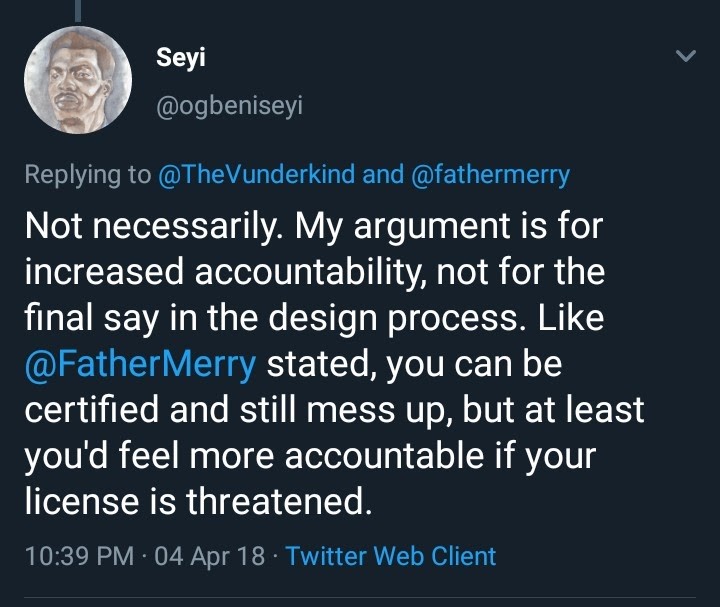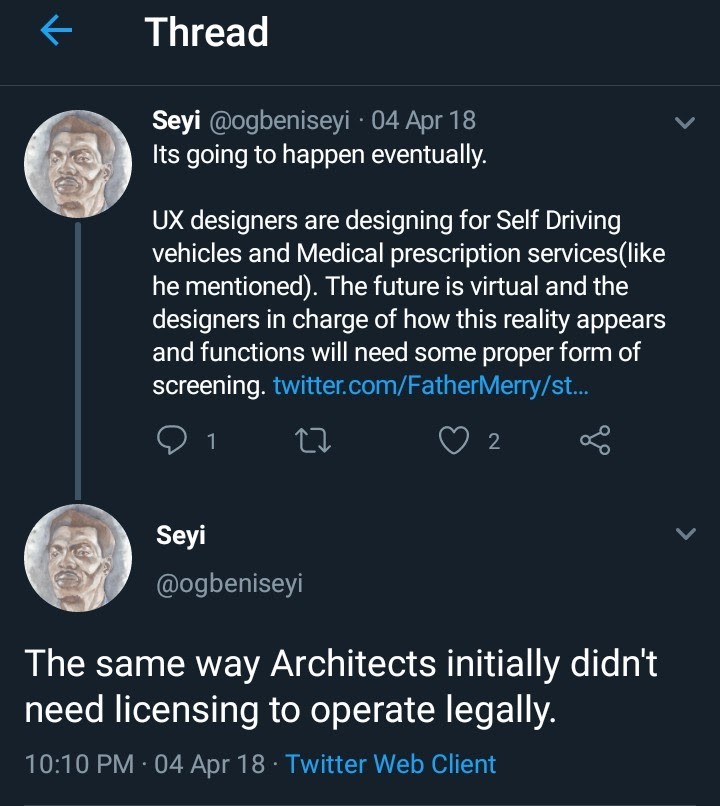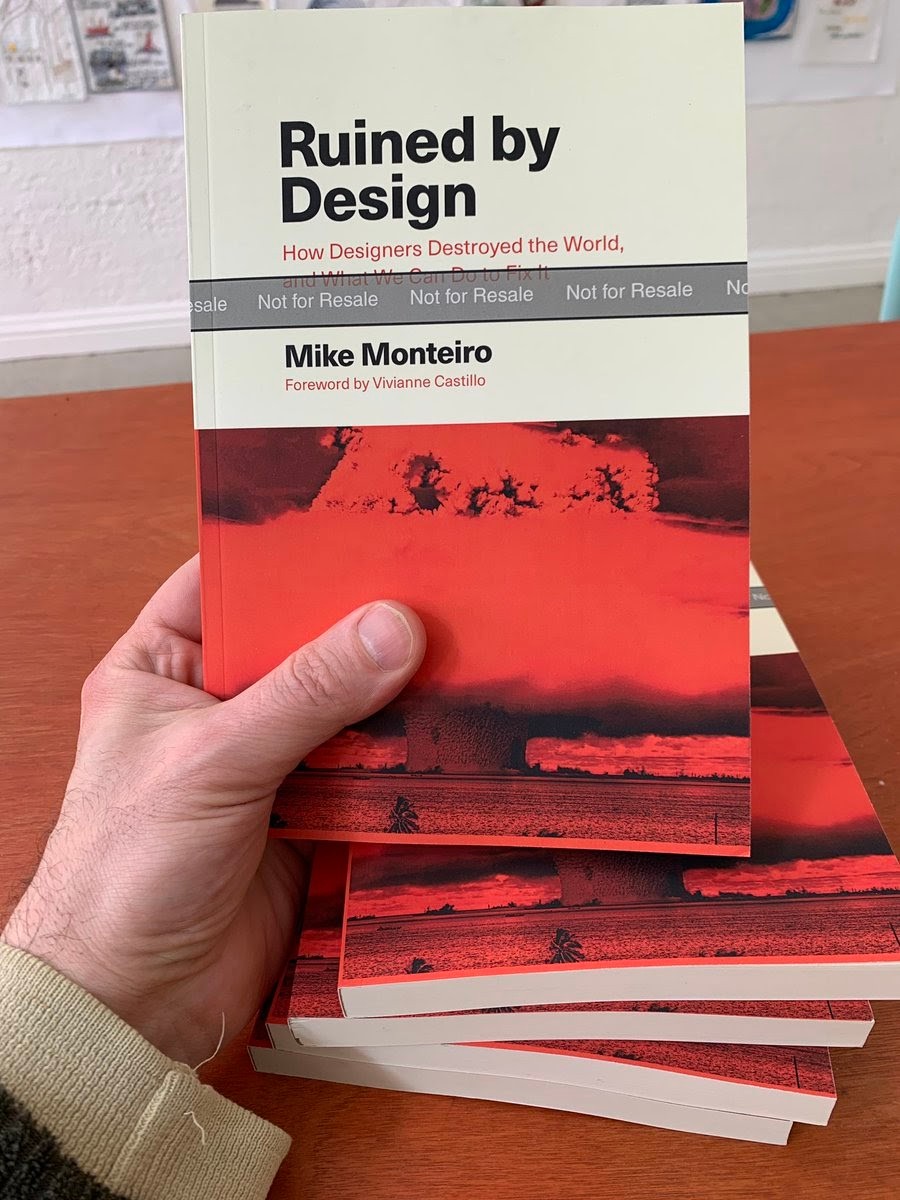Career and Life Lessons from 2 Years as a UX Researcher
17 February 2020
6 Mins Read

Sheyi Owolabi
Design in Nigeria, a Case for Ethics
In 2018. I came across the conversation about the ethics of being a Designer for the first time. It was a series of tweets by Seyi Olusanya, about Designers being required to get licenses to practice for ethical and accountability reasons. Not too long after, I ran into him at Lagos Meet and that conversation came up again. I knew then, it was something to be taken seriously, but I was not too bothered.
Fast-forward to 2019, the conversation found me again. I read Ruined by Design, book by Mike Monteiro, about how Designers “ruined” the world, and what we can do to fix it. Whatever impact Seyi’s tweets had on my consciousness when I saw them in 2018, reading the book, reinforced the gravity of the situation. I needed to take Ethics and Accountability more seriously in my work.
Like a lot, if not all, of designers in Nigeria, I learned my trade on Youtube (plus some paid classes here and there), saw what my colleagues were doing on Behance/Dribbble and shared my fascination with design on Twitter with the occasional rant about clients and how they don’t take us as seriously. However, as I got deeper into understanding this thing I call my passion, realizing the potential it holds, and what it can/will become in the not too distant future, the weight of the responsibility of my job as a designer became more apparent. It’s now beyond pushing pixels, or beefing with CorelDraw users because you think Adobe Creative Cloud is the best thing to happen to design since Paul Rand.
Reading that book shifted something in my head. I began to realize that, as designers, we find ourselves at the intersection of a Venn diagram that includes our employers/clients, the products we build and the users that use them. Thus, making us ethically liable for whatever impact the products (apps, posters, etc.) we design have on users. I realized that because of our unique position as the people who build/design these things, we should be gatekeepers, looking out for the best interest of the users.
We can refuse to work on products/ideas that aim to deceive users (we have seen cases of this with Jumia/Konga Black Friday sales) or misuse their private information (e.g Facebook and Cambridge Analytica saga). We should always look out for the users. What is the point of building a product you can’t be proud of because of its negative impact on society? A product that deceives and infringes on users’ privacy.
I get it. We are all hustling and trying to get this paper. The point of this opinion piece is not to relegate that fact. We all need to eat. However, is it to the detriment of society? Think about it nah. Isn’t this the argument yahoo boys make? The country is bad, and we have to eat. So, damn the ethics?
The design space in Nigeria is “fairly” young and still needs things to be put in place to be recognized as a truly professional career choice. However, while we are working to put these structures in place, where does the ethical argument fit in? Is it too early to begin this conversation?
Nowadays, it is fairly easy to see 7 out of 10 (I have no data to back this up) “Design Twitter” bios with UI/UX Designer or Product Designer. A lot of folks are entering into those kinds of roles. It surely makes sense considering how design and technology intersect. So, for example, we have designers building products for companies like Cowrywise, Piggyvest, Kudabank—products that require users to provide sensitive personal information. There are tons of data that can be collected based on users’ interactions with these products. Who is going to keep these companies accountable when the line is about to/being crossed? Will the designers working for these companies defend the users when their bosses ask them to add features they know will infringe on the privacy of the users? Will they say no when asked to use the data collected for something unethical?
I believe this conversation is way more nuanced, and I can never touch every part of the overall conversation in this piece. My point, however, is that we need to begin talking about the ethical implications of our jobs as designers if we are not doing that already. We need to take that part as seriously as we watch Chris Do’s videos on the business of design or read Michael Beirut’s books on how to make great Brand Identities.
We need to hold ourselves, as well as the people that employ us to build these products accountable. If you think it’s not that deep, just wait till people begin going to jail for unethical practices.
Ultimately, I believe we work for the people and we should care about how our work affects them.
Let’s get talking.
Other Posts
So You Are a Senior Designer?
Design Nudge: An Approach to Creating Human-Centered Designs.


